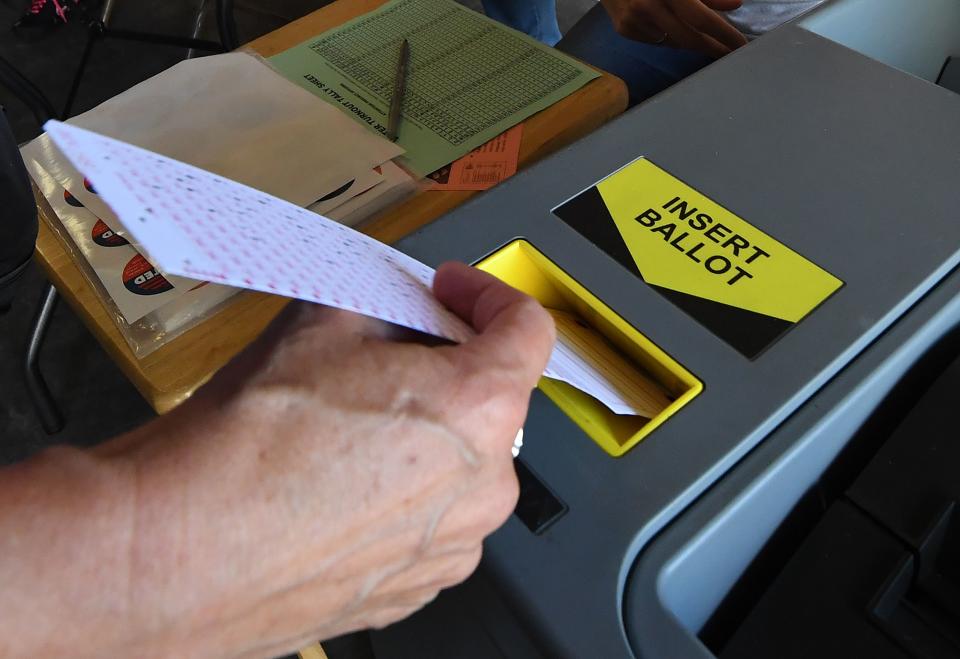Malfunctions, but not foreign powers, plague midterm elections
Long lines and malfunctioning machines — but apparently no foreign interference — plagued midterm elections as of Tuesday evening, as the first polls closed in Kentucky and Indiana, Department of Homeland Security officials said in a background briefing with reporters.
“We are not seeing any sort of malicious activity” attributable to a foreign actor, one of the department officials said. There have been long-standing concerns that Russia would attempt to sway the outcome, as it did in the 2016 election. President Trump has said he believes that China might be attempting to interfere in the midterms, though there is no evidence to support that claim. John Bolton, the national security adviser, has included North Korea and Iran on the list of actors potentially interested in disrupting the elections.

But the Homeland Security officials said election monitors had seen nothing “attributable to a nation state.” They described, instead, “run-of-the-mill” electoral problems, including “long ballots” and “aging technology,” which have contributed to hourslong waits around the country. The officials noted, in particular, New York City’s two-page ballot, which caused widespread problems.
The Department of Homeland Security recently disbursed $380 million to states to bolster electoral security. The department has also conducted risk assessments in some states and has implemented a data-sharing system that should allow for news of a potential threat to make its way to relevant parties.
At the same time, Russia may have simply stayed away. Vladimir Putin could be “playing the long game,” Laura Rosenberger of the Alliance for Securing Democracy, which monitors Russian interference, explained in an earlier interview with Yahoo News, before the 2018 election. “I would be trying to set up a more polarized electorate in 2020, to be able to get a bigger outcome there,” Rosenberger said at the time.
David J. Becker, who heads the Center for Election Innovation and Research in Washington, D.C., said he was “hearing of attempts to probe and scan” electoral systems but could not say where those attempts were coming from. Becker added that there is “unprecedented information sharing” this election among federal, state and local election officials.
“To our knowledge, all attempts have been unsuccessful so far,” he said, “but voting isn’t over, and everyone is staying on high alert.”
_____
Read more Yahoo News midterms coverage:
In Texas Senate race, both parties are at the door — all 7.4 million of them
Battle for the soccer-mom vote plays out in suburban Detroit
Menendez race pits ethical concerns against party loyalty, and loyalty is winning
A House rematch sheds light on how landscape changed from 2016
Virginia Republican congressman tries to weather scandal and wave of spending




